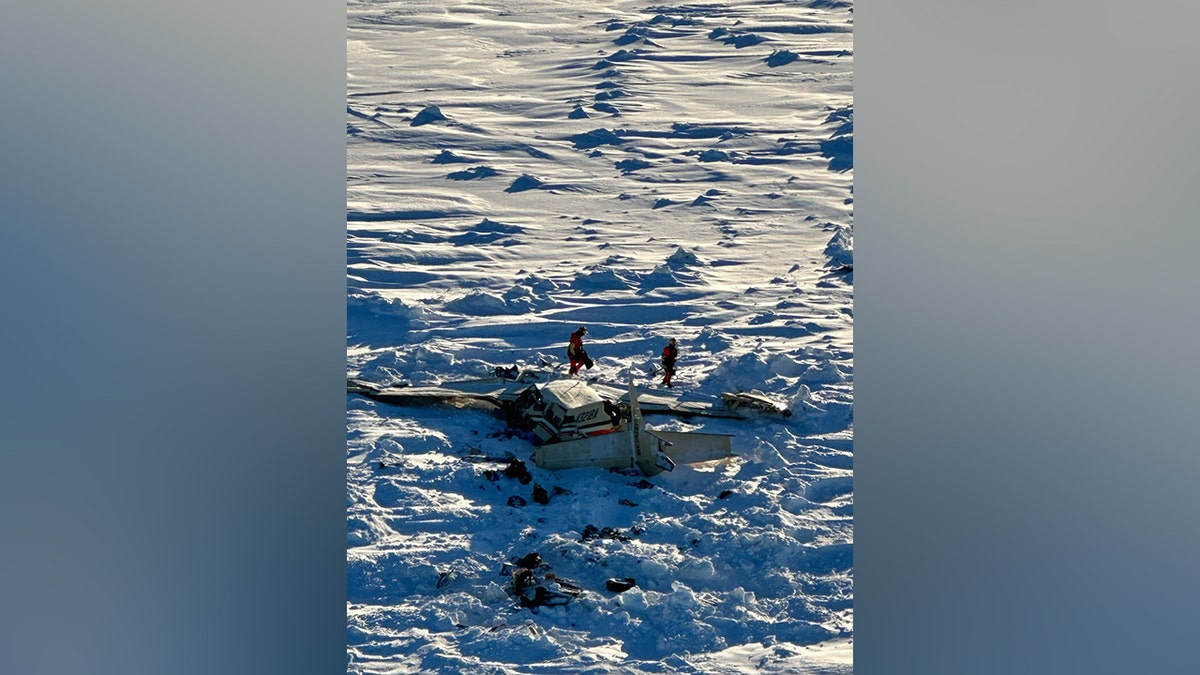Shocking: No Survivors Found After Bering Air Plane Crash Near Nome – Alaska Coast Guard Confirms Heartbreaking Loss of All 10 Passengers

In a devastating turn of events, the U.S. Coast Guard in Alaska confirmed Friday that a Bering Air flight carrying ten individuals has been located, crashed, with no survivors. The aircraft, a Cessna 208B Grand Caravan EX, was discovered approximately 34 miles southeast of Nome, bringing a sorrowful conclusion to the desperate search efforts that unfolded overnight.

The ill-fated plane had taken off from Unalakleet on Thursday, bound for Nome, before mysteriously vanishing from radar approximately 12 miles offshore over the frigid waters of Norton Sound. Flight data from FlightRadar recorded a rapid loss in altitude and speed at 3:18 p.m. local time, moments before communication was lost. The immediate response from rescue teams, including the National Guard and Air Force, initially yielded no results as aerial searches conducted by C-130 Hercules aircraft found no trace of the missing plane.
However, hope turned to heartbreak when the Coast Guard finally identified wreckage fitting the missing aircraft’s description. Inside, they recovered three deceased individuals, and shortly after, officials confirmed the worst: there were no survivors.
A Tragic End to a Desperate Search
Coast Guard Lt. Cmdr. Mike Salerno, speaking to the Anchorage Daily News, stated solemnly, “It is clear that there are no survivors of this tragic accident.” The news has sent shockwaves through the tight-knit Alaskan aviation community and beyond, as authorities work to understand the cause of the catastrophe.
During a Friday news conference, officials refrained from providing details on an undisclosed “item of interest” discovered during the search. However, what remains indisputable is the immense grief that now shrouds the families of those onboard, the aviation industry, and the communities they called home.
Bering Air, a vital regional airline serving remote Alaskan communities, has not yet released the identities of the passengers, pending notification of their loved ones. “Our thoughts are with those affected by this tragic incident,” the Coast Guard initially posted on social media—a statement that was later removed for reasons unknown.

Questions Linger as Investigation Begins
With the wreckage found and the tragic outcome confirmed, the focus now turns to uncovering what led to the aircraft’s sudden and fatal descent. The National Transportation Safety Board (NTSB) is expected to lead a full investigation, examining weather conditions, aircraft maintenance records, and pilot communications in search of answers.
Alaska’s unforgiving weather conditions often pose significant challenges for aviation, and the loss of this aircraft raises concerns about flight safety in the region. The Cessna 208B Grand Caravan EX, known for its reliability and adaptability to harsh conditions, has a strong safety record, making this incident even more perplexing.
As the investigation unfolds, the families and friends of those lost are left grappling with an unbearable reality. A routine flight, meant to connect communities, ended in unspeakable tragedy, leaving behind shattered lives and lingering questions. The skies above Alaska, vast and unpredictable, have once again claimed the souls of those who dared to traverse them.
The nation mourns alongside the grieving families, hoping for clarity and accountability in the wake of yet another aviation disaster in the Last Frontier.




